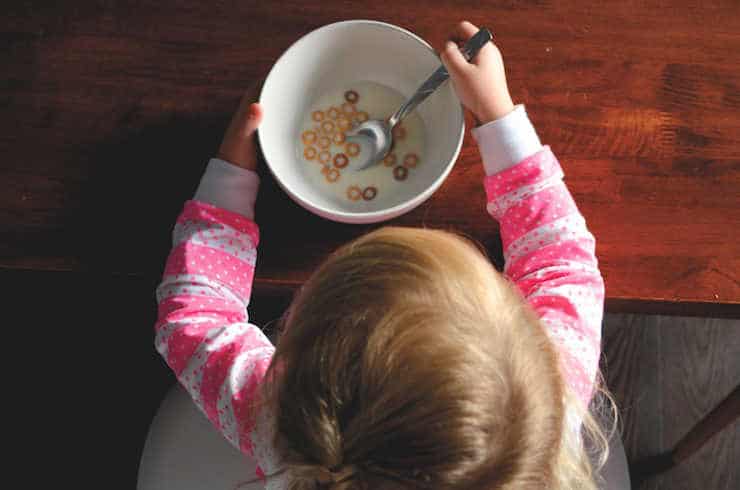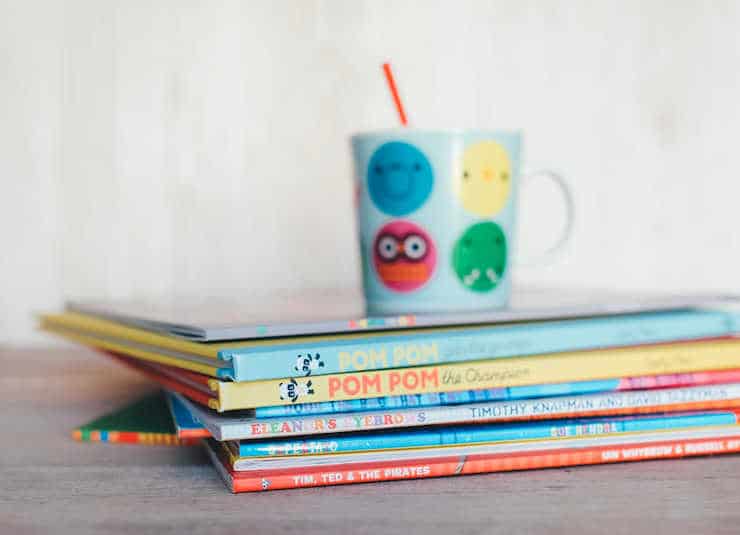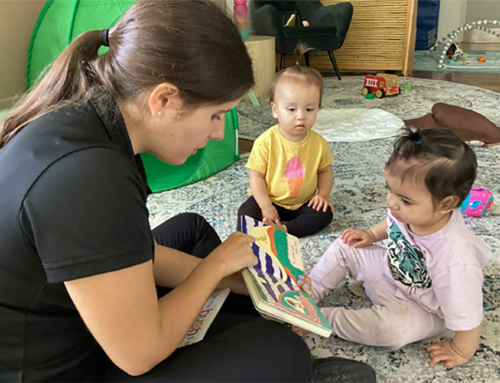All families need some type of routine to establish normalcy, a way to get things done and a sense of security.
Children often fear the unknown – whether it’s the broccoli on their plate – or a big life change like moving to a different house or gaining a new sibling.
While change is a learning opportunity, it can also be stressful for children. A normal routine brings comfort and consistency to a child’s life.

Daily routines might include:
- The time to get ready in the morning
- Bath times, mealtimes, naptimes and bedtimes
- Housework, cooking and cleaning schedules
- Play time, family time and outdoor play
When you include meaningful and important elements into your family life, you’re letting your child know what’s important.
While daily routines look different across neighbourhoods, Australia and the entire globe, the most important aspect is creating a routine that works for you and your family.
Here are 10 reasons a daily routine is important for your child:
1. Helps your child get on a schedule

Consistent routine will help your child and their “body clocks” with many day-to-day basics such as:
- Ability to take naps and sleep well at night
- Ability to eat healthy, full meals
- Regular bowel movements
- Healthy play and outdoor time
- Calm, relaxed behaviour at “down times” during the day
For example, because your child and their body know it’s time to sleep, they are more easily able to wind down and rest.
2. Bonds the family together
When a child knows what to expect and notices regular family activities, they begin to understand what’s important. This strengthens shared values, beliefs and interests.
The child, for example, might notice that eating breakfast together on Saturday mornings is important. They can see that family time together is special. Even if your child is young, they will pick up on these traditions. The family bonds together by doing regular, important things together.

3. Establishes expectations
Rather than having a power struggle about picking up toys at the end of the day or taking a bath, a child becomes accustomed to knowing when “pick up time” and “bath time” are.
Children begin to expect and complete activities without issue. As the parent, you become a partner in that routine, rather than the person who is telling the child to “do this” and “not do this.”
4. Creates a calmer household
Because the child, and other family members, know what to expect, stress and anxiety are reduced.

The child will know what comes next. They will feel valued because they are included in the plans and don’t feel as if they’re being forced to do something.
5. Gives your child confidence and independence
With a routine, a child will learn over time when it’s time to brush their teeth or put on their pajamas. They will take pride in knowing what they are supposed to do – and doing it by themselves.

Rather than always being told what needs to happen, your child will feel confident to go ahead and be in charge of themselves. When children feel empowered and independent, they are less likely to rebel or retaliate.
6. Establishes healthy, constructive habits
From brushing teeth regularly to completing homework every afternoon, routines help establish constructive habits.
Children who practice these skills will be able to better manage their time. As they age, they’ll have more self-discipline in terms of healthy grooming and eating habits, along with studying and cleaning their rooms.

7. Helps you (the parent) remember important things
Whether it’s ensuring your child takes their medicine every day or remembering to pay the bills every month, a routine helps you stay on track.
In the midst of busy family life, you’ll be able to keep track of the important details – allowing for a more stress free household and quality time together as a family.
8. Offers your child an opportunity to get excited about what’s ahead
If your child knows what’s on the schedule, they anticipate and look forward to future events – such as going to the park on Friday afternoons or spending time with Dad on Sunday mornings.

When these activities are established, your child feels like a loved part of the family and the world.
9. Provides opportunity for special “daily rituals”
When you build something into your day, like snuggling and reading to your child before bed, you instill special moments or “daily rituals.”
These dedicated times create increased bonding and connection with your child every day. Rather than just moving from one activity to the next, you have quality, relaxing time built into each day.
10. Offers stability during times of change or stress
Changes and stresses impact a child’s life and sense of security, such as a divorce, change in school system or addition of a new sibling.

When the family has an established a routine, normalcy is present in the child’s life, no matter what is going on. A child finds calmness, stability and love through elements of routine, such as family dinners or regular Thursday trips to the playground.
The Importance of Flexibility
While establishing and maintaining routine has a wealth of benefits, it’s vital to also remain flexible. Spontaneity and creativity are important factors in a child’s life. For example, the breakfast dishes can wait if there is an exciting animal in the backyard or a special Saturday carnival happening in the city.

Remember to stay sensitive and adaptable to the needs of each child (and adult). When a schedule becomes too regimented or strict, the benefits will be reduced, and children may feel controlled by it rather than freed by it (which is the ultimate goal).
How to Set a Daily Routine for Your Child
As Susan Newman, a social psychologist from New Jersey shares, routines can begin from the first day of life. If you haven’t started a routine from the early days, don’t worry. They can be established and began at any point. The earlier you establish a routine, the better.
Step 1: Establish the important times such as meal times, snack times, naptimes and bedtime.
Because these affect how well your child is able to sleep and eat, these items should come first.
If you currently have no schedule, gradually move to a consistent routine. For example, you may wish to set up a regular naptime and bedtime first. Then, you can add in regular mealtimes and bath times.
Step 2: Practice patience.
Setting a schedule may be hard for your child at first, but they will become accustomed to it.
Try not to become impatient or frustrated if the routine takes time to become “regular” for your child.

Step 3: Add “helpful” elements to each part of the routine.
For instance, you may wish to add in a regular 10 minute reading and snuggling time with your child before bed. This helps them wind down and feel ready to sleep.
Step 4: Work toward consistency and make room for flexibility.
In order for a routine to stick, you’ll need to make sure you keep it as regular as possible.
However, stay open to flexibility, especially for holidays and special events, so your child’s mood doesn’t become solely dependent on eating at a specific time, for example.

Step 5: Establish special times with your child.
Whether it’s a regular trip to grandma’s house or walking the dog together, create expectations and routine of family time.
Step 6: Adjust as needed.
As the months go on, you’ll start to see what’s working and not working for the family. A routine is meant to help the family, not hinder it. Be sure your routine is healthy and positive for your child and other family members.
To learn more about our daily routines at Petit and how we adapt to the needs of each child, book a tour today.
Acknowledgements
http://www.schoolsparks.com/blog/the-importance-of-routines-for-children
http://www.mommd.com/routines.shtml
http://examinedexistence.com/why-having-a-daily-routine-is-important/
http://www.ahaparenting.com/parenting-tools/family-life/structure-routines





